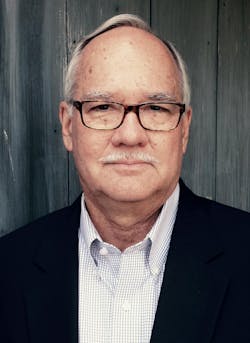Hear this article in podcast form
By Ron Shinn
The fifth and final scheduled round of talks to establish an international plastics treaty concluded in December with no agreement except to meet again sometime in 2025.
I am not surprised at the outcome, or should I say lack of outcome. I have said before that getting hundreds of delegates representing 170 countries with more than a thousand lobbyists whispering in their ears to agree on a treaty with hefty financial and political implications is not a scenario for success.
Will a sixth negotiating session make a difference? I remain highly skeptical.
A bloc of about 100 countries wants limits on virgin resin production, and another 94 countries want problematic chemicals phased out entirely. The oil-producing nations, including those from the Middle East, Russia and India, do not want virgin resin production curtailed or chemical phase-outs.
Chris Jahn, president and CEO of the American Chemistry Council (ACC), said after the fifth negotiating session in Busan, South Korea, that it is important for treaty talks to stay focused on addressing mismanaged scrap.
Katie Drews, CEO of Eureka Recycling in Minneapolis and national director of the Alliance for Mission-Based Recycling (AMBR), said in Busan that the treaty should limit hard-to-recycle plastics, cut back on plastic production, avoid chemical recycling, and prioritize reuse and redesign.
Plastics Industry Association CEO Matt Seaholm wrote just before the third negotiating session in Ottawa, Canada, about the importance of recycling. “We know we don’t recycle enough plastic — and the plastics industry is committed to recycling more,” he said. He said the talks need to focus on plastic waste and not limiting production of plastics.
Should we care? Who is the big loser if no treaty is achieved?
I believe the biggest loser will be the plastics industry — processors, suppliers, OEMs and recyclers.
There is a growing anti-plastics sentiment. It started with concerns over plastic waste killing marine life, and now there are concerns that microplastics are building up in our bodies. The anti-plastics movement is only going to get louder.
The easy answer is that if there is no treaty, the industry endures criticism and marches on. Jobs and profits are maintained.
But that makes the industry look like it cannot solve its own problem. Recycling, while important, has not yet made much of a difference in the bigger picture. It cannot be discounted, but we also cannot depend on recycling to quell the anti-plastics sentiment.
I hope the sixth treaty negotiating session sometime this year does not simply become the next one in an unending string. The plastics industry needs to show the world that it can solve its plastics pollution problem.
A treaty might lead nations — including the U.S. — to adopt meaningful, common-sense legislation that would improve collection, invest in technology, enforce product design standards, require more recycled content in finished products, limit virgin resin production and eliminate problematic chemicals and additives.
Will meaningful change require an entirely new plastics value chain? Let’s hope not.
But are big changes to the current value chain needed? Yes.
Would an international treaty improve our future? No doubt.
We should all be paying attention.
About the Author
Ron Shinn
Editor
Editor Ron Shinn is a co-founder of Plastics Machinery & Manufacturing and has been covering the plastics industry for more than 35 years. He leads the editorial team, directs coverage and sets the editorial calendar. He also writes features, including the Talking Points column and On the Factory Floor, and covers recycling and sustainability for PMM and Plastics Recycling.

